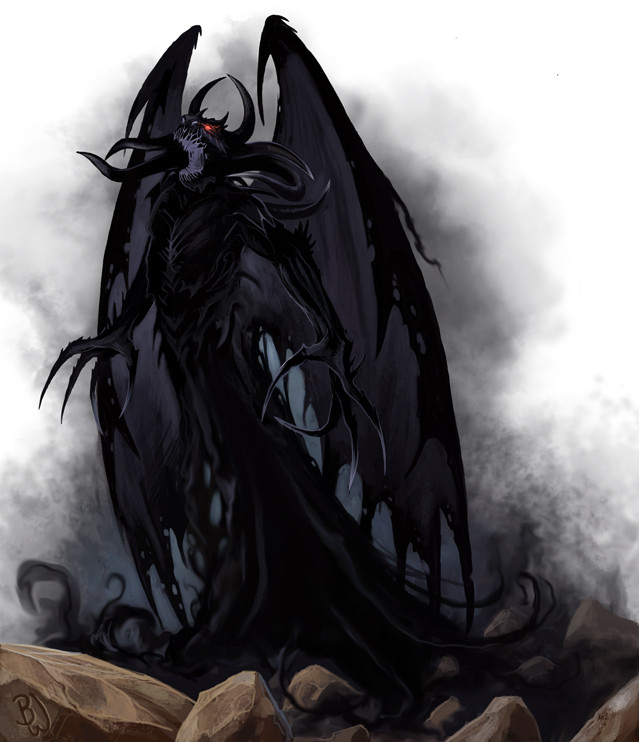I must confess that I never read the Harry Potter series as a kid. I wasn't abroad the train of the obsession of Harry Potter, and although I enjoyed the movies, I couldn't tell you what the first few were about today. It was that long ago, and thus reading this book now is like getting a new experience… or close to one, at least.
It only hit me, as I was reading, the surface of the cool stuff present in the universe of Harry Potter. The nomenclature is very inspired, though at times significantly less than clever. As a fan of fantasy and one with a great appreciation for the likes of J. R. Tolkien's efforts in creating an entire language all its own, seeing things like the "Put-Outer" do nothing but put a foul taste in my mouth. I understand that it is a Young Adult novel, but seriously? In a world with so many cool inspirations and naming conventions, the first magical item the reader hears about is the "Put-Outer"?
 |
| What could a an evil, inhuman wizard look like? |
"Some say he died. Codswallop, in my opinion. Dunno if he had enough human left in him to die." -Pg. 57That plays up a villain. That creates mystery. That makes the reader wonder just how powerful the guy was, if he had apparently gained enough power to lose the title of being human at all. And the book is barely 3 chapters in at this point. That is good writing. And speaking of good writing, given my knowledge of the later events in Harry Potter, J. K. Rowling does an excellent job of foreshadowing. Her planning is evident when Harry chooses his wand.
 |
| Slightly disappointing in all honesty. |
"It is very curious indeed that you should be destined for this wand when its brother --why, its brother gave you that scar." -Ollivander, Pg. 85
The fact that Harry has a wand that is connected to Voldemort's is clear foreshadowing of a connection between the two. This is all only the start of the cool things I could talk about in just the first half of the book.
Image Sources:
http://lilithstreasuretavern.weebly.com/uploads/1/3/7/3/13737227/s144094589190160637_p425_i1_w639.jpeg
http://upload.wikimedia.org/wikipedia/en/a/a3/Lordvoldemort.jpg


